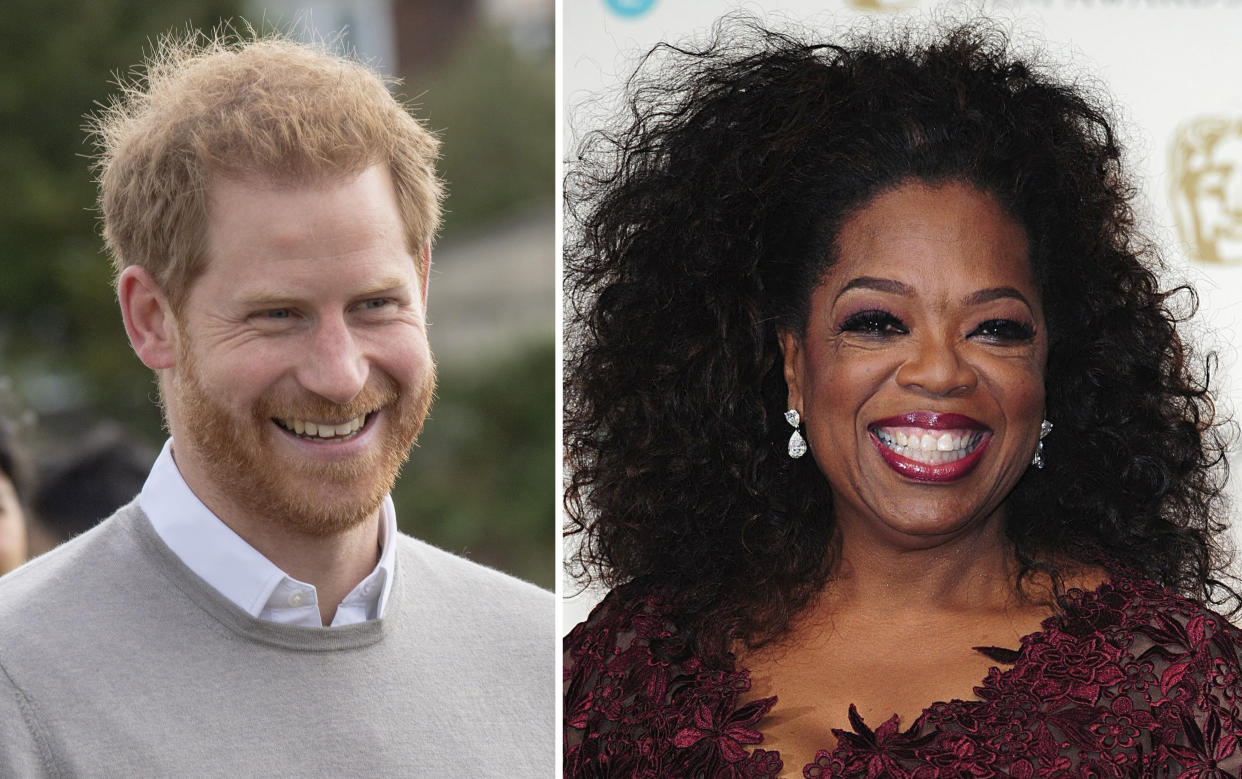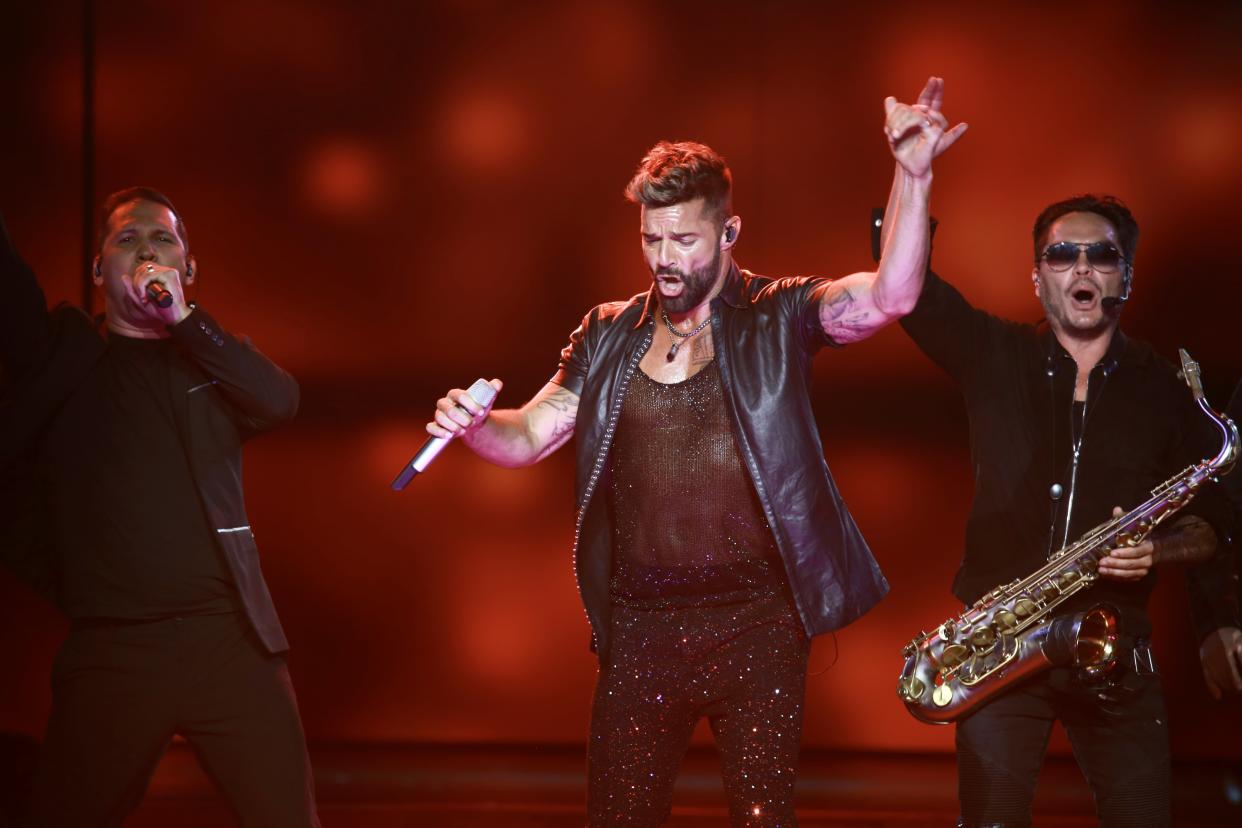Naomi Osaka, Prince Harry are open about their emotional struggles. Here's why it matters.

Naomi Osaka and Prince Harry are wiping out secrecy around mental health by sharing their private pain, activism that can help people at home.
Tennis star Naomi Osaka revealed that she has depression and social anxiety after she was threatened with suspension and fined for refusing to participate in press conferences amid the French Open, an annual tennis tournament. Osaka, 23, who initially explained that repetitive questioning shook her confidence, later tweeted that she was still coping from the events of the 2018 U.S. Open (during which Serena Williams’s arguments with an empire played a part in her loss to Osaka. The stressful event left Osaka in tears while the crowd booed and cheered). “Anyone that knows me knows I’m introverted,” wrote Osaka, who eventually dropped out of the tournament, adding that her goal was to “exercise self-care.”
Although tennis officials apologized to Osaka, fellow athletes lauded her bravery. "I feel like I wish I could give her a hug because I know what it's like. I've been in those positions,” Williams told reporters, while Olympic swimmer Michael Phelps called Osaka’s stance a "breakthrough for the mental-health world."
And companies noticed: The sleep and meditation app Calm donated $15,000 to the charity Laureus Sport for Good and pledged to pay fines for athletes who decline Grand Slam media appearances for mental health concerns. While Nike stated, "Our thoughts are with Naomi. We support her and recognize her courage in sharing her own mental health experience."

Meanwhile, Prince Harry heightens mental health awareness, first with him and wife Meghan Markle’s groundbreaking tell-all with Oprah Winfrey on their plight in the royal spotlight — during which they destigmatized topics like depression and suicide — and now on “The Me You Can’t See,” the Apple TV+ series hosted by Harry and Winfrey. On the show, Harry discussed how his grief over the 1997 death of his mother Diana, Princess of Wales, caused a drinking problem that masked his unresolved emotions.
And this week, singer Ricky Martin told People that he experienced post-traumatic stress syndrome (PTSD) after a 2000 interview with Barbara Walters, who pressured him to clarify rumors about his sexuality, to his refusal. Although Martin came out publicly a decade later, he recalled Walters's aggressive reporting style. "When she dropped the question, I felt violated because I was just not ready to come out,” the “Livin' La Vida Loca” singer said. “I was very afraid. There's a little PTSD with that." (In 2017, Walters admitted on The View that the sexuality of others is “nobody’s business — including mine.”)
Then there are Demi Lovato, Ryan Reynolds and Billie Eilish, who have all shared their insecurities, addictions and mental health treatment.
According to the National Institute of Mental Health, as of 2019, 51.5 million Americans have a mental illness, defined as a mental, behavioral or emotional disorder, varying from "no impairment to mild, moderate, and even severe impairment" with the latter category causing disturbances with life activities. And a February report conducted by the American Psychological Association and The Harris Poll found that because of the pandemic, physical health is suffering due to undesired weight changes, alcohol consumption and sleep disturbances. Other research by the APA showed that one year after the pandemic, parents sought more mental health treatment and were diagnosed with more mental health disorders than people without children.

So when celebs — worshipped by society on levels that range from standard to pathological, as one study found — open up, people listen. Research published in the journal Academic Psychiatry last year examined the overall impact of celebrity disclosure, citing additional work that highlighted examples: In 2011, when Lovato disclosed she had bipolar disorder (a mental illness that causes extreme mood swings) negative stereotyping toward people with the condition lessoned, per a 2017 study published in the journal Communication Studies. (Lovato later clarified in her April documentary Demi Lovato: Dancing With the Devil that she may have been misdiagnosed). Other research argued that the rise in incidence of bulimia (an eating disorder marked by binging and purging food, per the National Eating Disorders Association) could be associated with Princess Diana disclosing her case (although researchers note that the "rise" could be due to more women seeking treatment).
According to Helen Friedman, a clinical psychologist in St. Louis, although celebrities are entitled to privacy, their storytelling can comfort others. "By speaking out, celebrities de-stigmatize mental health and [in Osaka's case] bring awareness to social anxiety which is often misunderstood," she tells Yahoo Life. The disorder, per the APA, causes fear of social situations such as meeting people or having conversations, fearing embarrassment or being viewed negatively.
"It also encourages self-care in that we see celebrities break out of expected roles that can restrict their wellbeing," says Friedman. "Therefore it's easier for others to admit they are struggling and need to step back." And this honesty takes bravery, she adds. "People confuse vulnerability with weakness but it reflects courage and strength," says Friedman. "It means you have enough self-esteem to feel alright with yourself no matter what people think."
Backlash is the compromise — when Tess Holliday, a plus-sized model revealed she was anorexic (a disorder marked by weight loss from restricted calories), some social media users discredited her diagnosis, branding her a liar. Holliday (whose diagnosis may or may not be categorized as "atypical anorexia" due to weight stigma, a NEDA expert previously told Yahoo Life) said the verbal abuse was "overwhelming."
"There will always be a segment of the population who criticize celebrities that speak out because they view them as highly-paid commodities for public pleasure," says Friedman. "The truth is, you can't please all the people all the time." She speculates that Osaka's avoidance of media pressure could be one way to shore up anxiety for performances, explaining that feeling butterflies in small doses can actually help performance.
And star confessions can sometimes land differently than professional rhetoric, says Friedman. "What's personal is most universal."
Read more from Yahoo Life:
Want lifestyle and wellness news delivered to your inbox? Sign up here for Yahoo Life’s newsletter.


